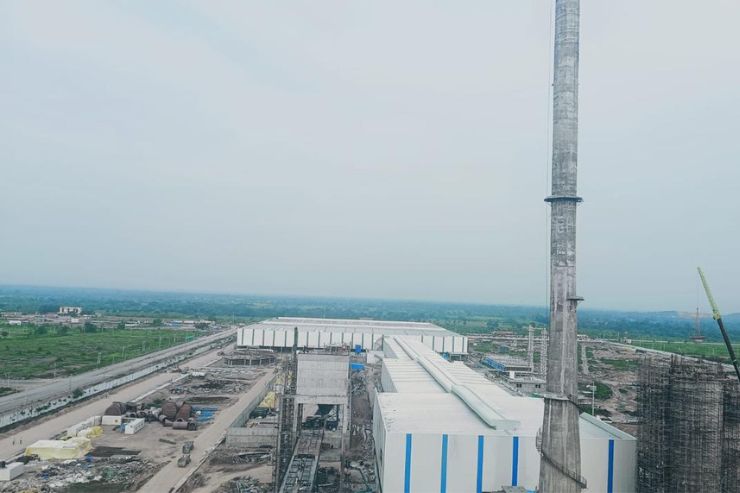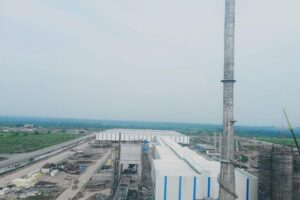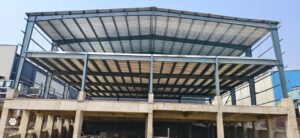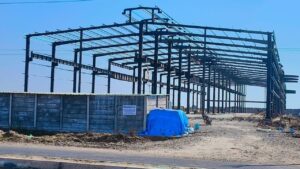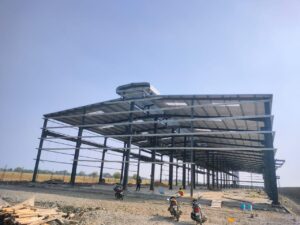The construction industry has seen massive changes in recent decades, with modern techniques replacing age-old building practices. One of the most significant transformations is the rise of Pre-Engineered Buildings (PEBs), designed and delivered by specialized PEB manufacturers.
But when it comes to making a choice between PEB manufacturers vs. conventional construction, many project owners still wonder: Which is better for long-term investment, durability, and cost-efficiency?
Table of Contents
ToggleUnderstanding the Basics
What are Pre-Engineered Buildings (PEBs)?
PEBs are modern steel structures designed, fabricated, and assembled by professional PEB manufacturers. These buildings are pre-designed at the factory, delivered to the site in ready-to-assemble components, and installed with minimal time and labor.
They are widely used for warehouses, factories, showrooms, industrial sheds, cold storage, aircraft hangars, and even commercial complexes.
Key Features:
- Factory-fabricated components
- Quick assembly at the site
- Flexible design options
- Cost-effective and durable
What is Conventional Construction?
Conventional construction, often referred to as RCC (Reinforced Cement Concrete) or brick-and-mortar building, has been the standard approach for centuries. These structures are built entirely on-site, using raw materials such as cement, sand, concrete, and bricks.
Key Features:
- On-site construction from scratch
- Customizable but time-consuming
- Heavy reliance on manual labor
- Durable but often costly and slow
PEB Manufacturers vs. Conventional Construction: A Detailed Comparison
Let’s compare both approaches across different factors:
1. Construction Speed
- PEB Manufacturers: Offer ready-to-install structures, reducing construction time by up to 60%. A warehouse or factory can be built in a few months.
- Conventional Construction: Much slower, as everything is built from scratch at the site. Large projects can take years to complete.
2. Cost-Effectiveness
- PEB Manufacturers: Pre-fabricated structures reduce material wastage, labor costs, and overall expenses.
- Conventional Construction: Involves higher labor costs, material wastage, and long construction timelines, which increases overhead costs.
3. Design Flexibility
- PEB Manufacturers: Highly flexible designs that can be customized as per industry requirements, including large clear spans for warehouses and showrooms.
- Conventional Construction: Customizable too, but limited in span width, making it less efficient for large industrial or commercial spaces.
4. Strength & Durability
- PEB Manufacturers: Use high-strength steel, making structures resistant to earthquakes, fire, and harsh weather.
- Conventional Construction: Strong and durable but susceptible to cracks, corrosion, and high maintenance over time.
5. Sustainability & Eco-Friendliness
- PEB Manufacturers: Support sustainable building by using recyclable steel and reducing on-site pollution.
- Conventional Construction: Generates a lot of construction waste and uses non-recyclable materials.
6. Maintenance Costs
- PEB Manufacturers: Require minimal maintenance due to durable steel structures and pre-coated surfaces.
- Conventional Construction: Regular maintenance required for plaster, paint, and concrete repair.
7. Scalability & Expansion
- PEB Manufacturers: Easy to expand by adding extra bays or extensions without disturbing the existing structure.
- Conventional Construction: Expansion is difficult, costly, and may weaken the original structure.
Advantages of Choosing PEB Manufacturers Over Conventional Construction
- Faster construction timeline
- Lower cost of building
- Lightweight yet strong steel structures
- Easy to expand in the future
- Reduced environmental impact
- Suitable for industrial, commercial, and institutional projects
Where Conventional Construction Still Works Better
While PEB manufacturers offer many advantages, conventional construction still has its relevance:
- Residential Buildings: RCC and brick-based homes remain popular due to traditional designs.
- High-rise Towers: Concrete is often preferred for tall residential or commercial towers.
- Heritage or Custom Designs: Projects that demand intricate architectural detailing are still better suited for conventional methods.
PEB Manufacturers vs. Conventional Construction: Which is Better?
When it comes to industrial and commercial projects, PEB manufacturers clearly hold the advantage due to speed, cost-efficiency, flexibility, and sustainability.
However, for residential or heritage-style projects, conventional construction still plays a vital role.
Final Verdict: If you are building warehouses, factories, showrooms, or large industrial sheds, PEB manufacturers are the better choice. For traditional homes and high-rise towers, conventional construction may still be preferred.
Frequently Asked Question
1. Are PEB buildings stronger than conventional RCC structures?
Yes, PEBs are made of high-strength steel and are more resistant to earthquakes and weather.
2. Which is more cost-effective: PEB manufacturers or conventional construction?
PEB manufacturers are more cost-effective due to less material wastage and faster construction.
3. Do PEB manufacturers provide design customization?
Yes, PEBs can be customized for industries, warehouses, or showrooms with flexible design options.
4. Which has a longer lifespan, PEB or conventional buildings?
Both can last long if maintained well, but PEBs require less maintenance.
5. Can PEB structures be used for residential projects?
While possible, PEBs are mainly used for industrial and commercial projects.
6. How long does it take to construct a PEB compared to a conventional building?
A PEB can be completed in a few months, while conventional buildings may take years.
7. Are PEB structures eco-friendly?
Yes, they use recyclable steel and create less on-site waste compared to conventional methods.
8. Which construction method is better for high-rise buildings?
Conventional construction is still preferred for high-rise towers.

